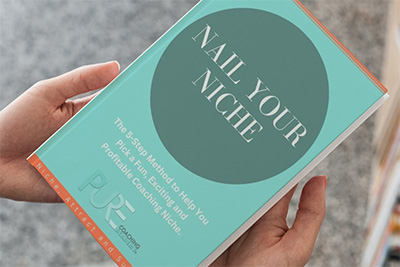
How To Become More Resilient
How To Become More Resilient
Growing up within a family business, surrounded by chaos, resilience is in my blood.
Whether horse riding and falling at a hurdle, or landing in a heap of snow whilst skiing, I was lucky enough to participate in some serious resilience-building sports as a child.
Get back on the horse’was not just a saying during my upbringing.
I also watched as my parents built a business from scratch, and then rebuilt it when it failed. So, whether you believe in the field of nature or nurture, (or perhaps a combination of the two in my case) there is no questioning I am strong-willed and resilient.
But what if a resilient nature eludes you, and now you find yourself stuck with the feeling that, if only you had the strength, you could achieve your dreams?
The good news is that we can all learn new skills, at any stage of life.
Our brains can adapt in magnificent, powerful ways, all you need is a little know-how, a committed attitude to practise, as with any other learnt skill.
See my top tips for building resilience below:
Replace the word ‘difficult’ with ‘challenging’
Any time you find yourself thinking or saying something is ‘difficult for you’ become consciously aware, and instead, begin to change this to ‘challenging’. We often fall in the face of difficulty, but resilient people see difficulties as challenges which they are geared up to take on and ultimately overcome.
Know your strengths
Nobody is brilliant at everything. No matter how much you might believe your siblings or co-workers are faultless, they will have their weaknesses, that’s for sure. Learn to separate your strengths from your weaknesses.
If you aren’t so good at presenting presentations at work but can put together an end of year review whilst juggling multiple other duties, maybe you’re a multitasking wiz!
Instead of automatically allowing your lack of confidence in one area to spill over into other aspects of your job, with an ‘I’m not good at anything’ attitude, use your skills to your advantage.
Find a colleague that may be more confident at presenting, but struggling where you thrive, and negotiate win-win a deal, using your skills to help them and vice versa. Resilient people focus their energy in areas they know they can achieve and let go of the stuff they can’t, building confidence and self-belief.
Set clear goals
Give yourself a reason to get out of bed and get going with your day. If you have a big goal in mind, break it down. Set yourself smaller short terms goals which will help you along the way to achieving your dream.
This way you will feel satisfied and motivated by making daily progress, rather than waiting for one big payout at the end, which may never come if you run out of drive along the way.
This way you are also more likely to continue on a path towards your big goal even when hiccups arise along the way. Smaller, short term goals can often be achieved in a variety of ways, meaning you can sidestep hold-ups as they occur.
Learn to see ‘failure’ as a lesson, not a mistake
This is where ‘get back on the horse’ truly applies. Resilient people look upon a situation that didn’t work out and view it as a lesson learnt and an avenue explored rather than a mistake which should have been avoided.
We all make mistakes; these experiences are often our most valuable in terms of personal growth and development. The most successful businessmen and women in the world aren’t the ‘lucky’ ones, they are the ones that didn’t stop trying until they succeeded.
Prioritise yourself
It is great to be empathetic and connected to those around you.
However, resilient people know when they need to take priority.
People pleasing, and the constant worry of what others think that comes with it, is a crippling habit that will only ever end with you putting your needs aside at the first sign of disapproval from others.
If you’re not hurting anybody and your goals are going to benefit you and maybe even those around you, learn when to say no and how to set healthy boundaries with those around you.


